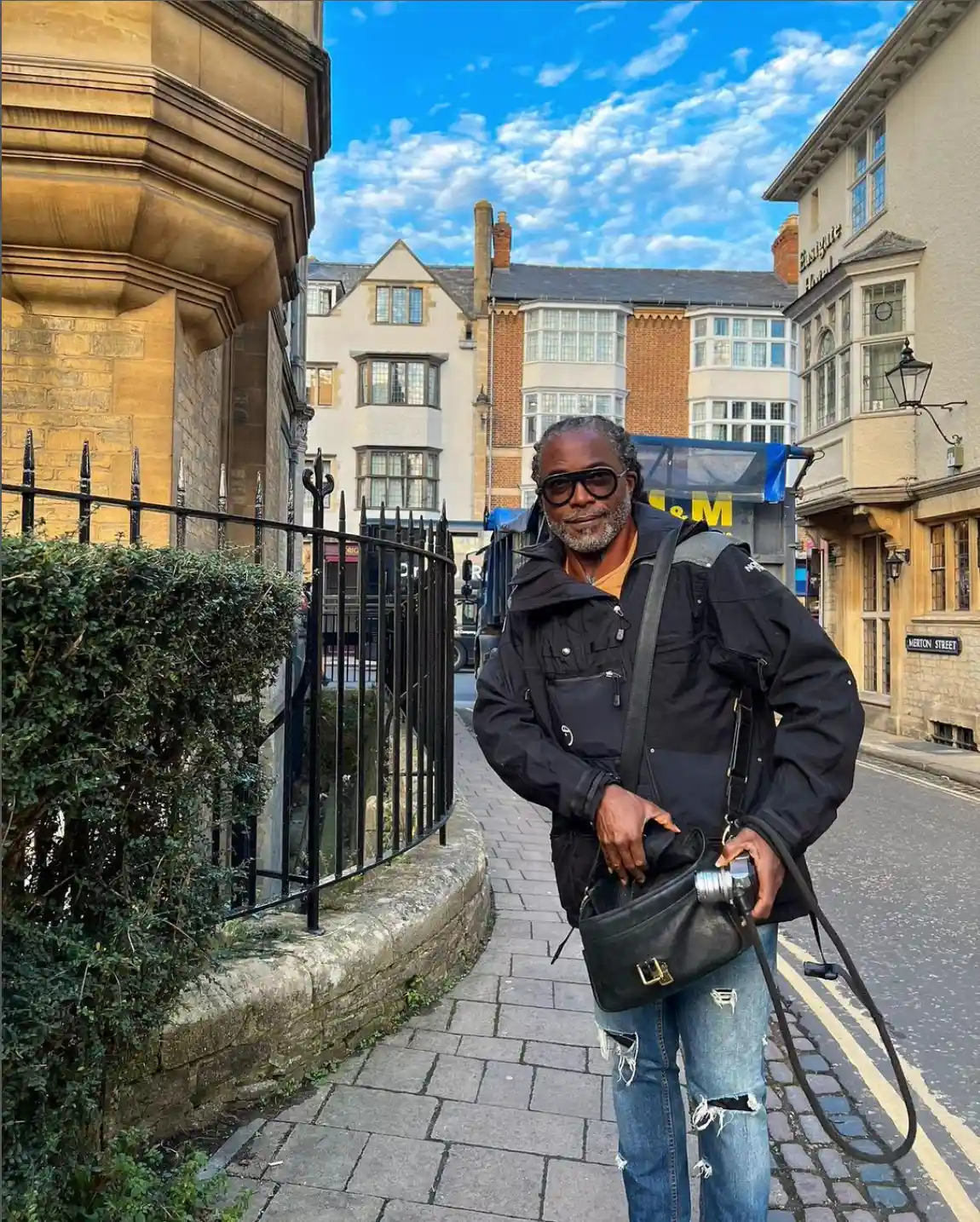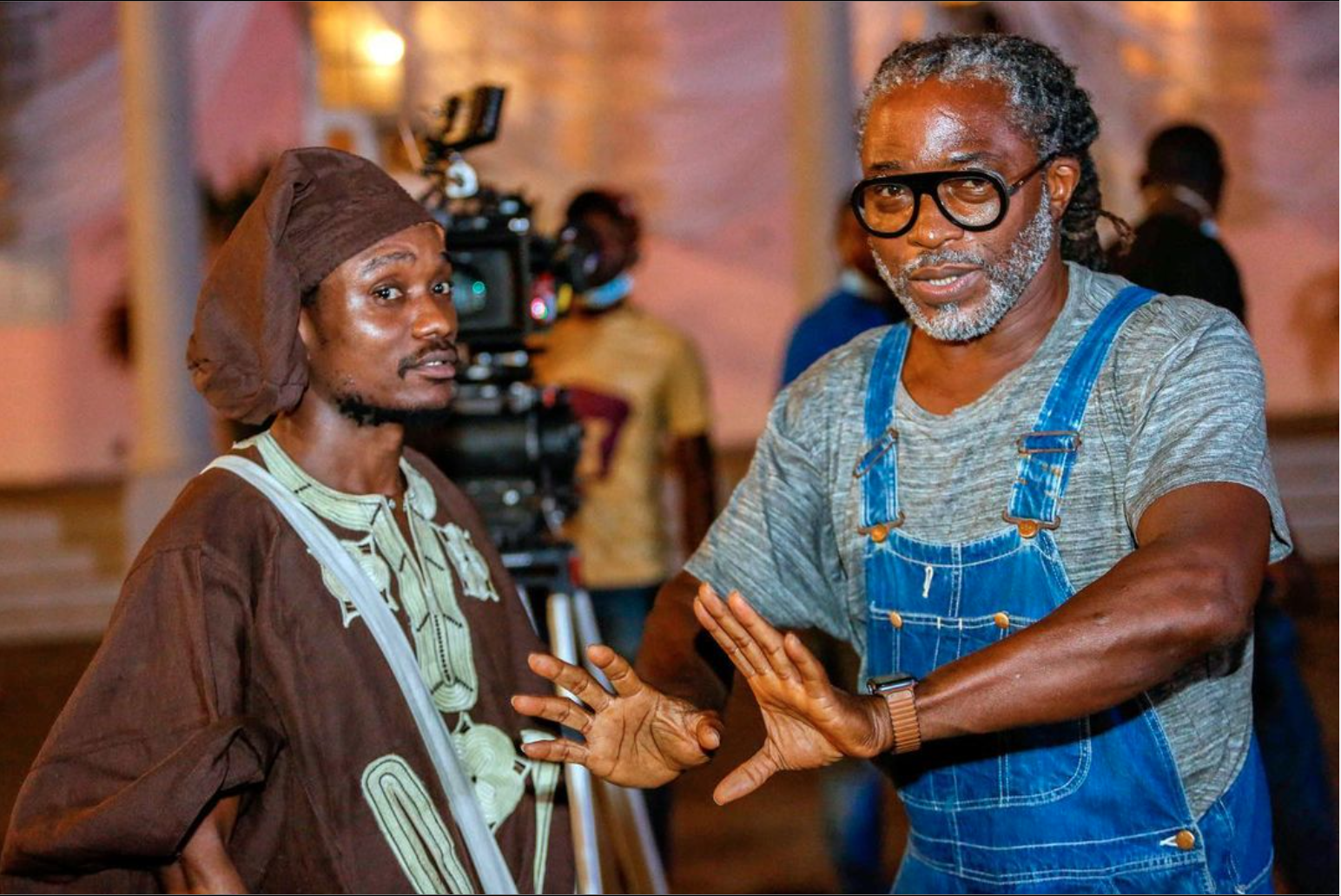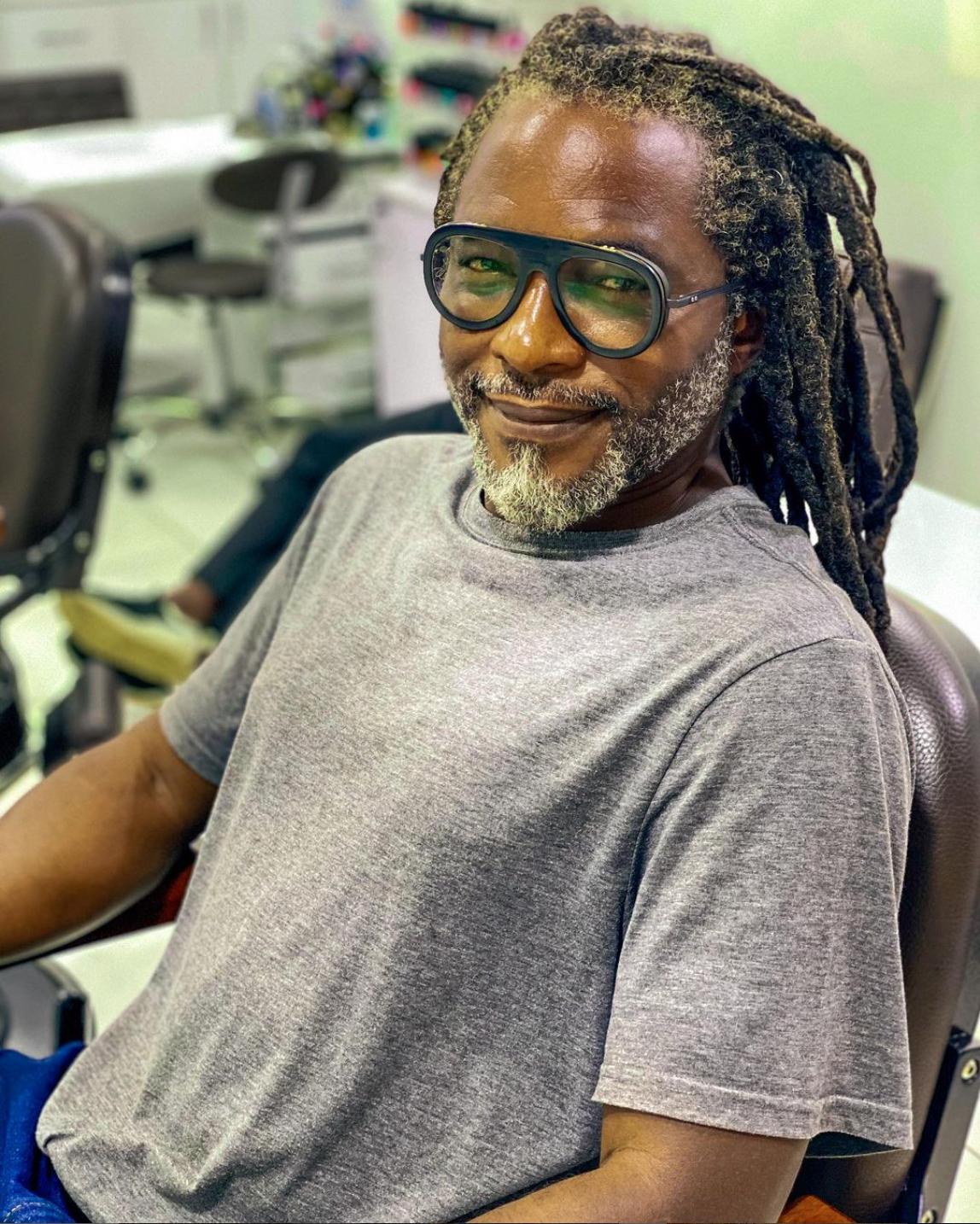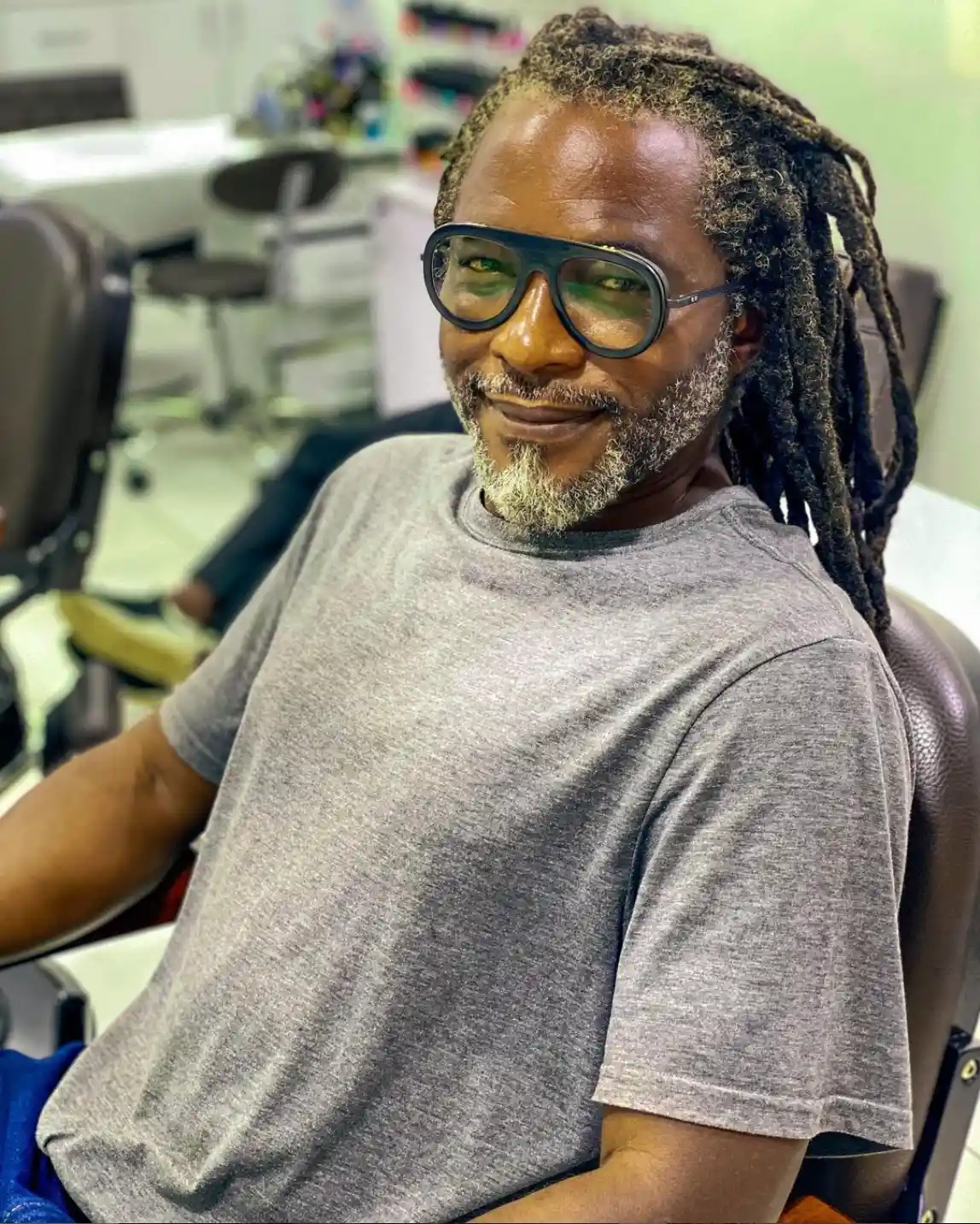Born in October 1967, in Kafanchan, Kaduna, Biyi Bandele was a renowned filmmaker, playwright, novelist, photographer, poet, director, and producer. His father, Solomon Bandele-Thomas, was a war veteran who fought in World War II while Nigeria was still part of the British Empire, and Biyi’s childhood memories were filled with stories of war. These stories formed his decision to become a writer. And he wrote.

Sadly, on Sunday night, Biyi Bandele’s shocking passing was announced.
In an excerpt of his 2013 interview with This Day, Biyi said:
When I was a child, I remembered war was something that sprang up a lot in conversations on the part of my dad who talked about the war like one big party. But my mum and grandmother would remind him of how he came back from Burma. He came back in a straitjacket. You know, he completely lost it. It was something that pained him for the rest of his life. He had one or two bullets that were left because it was safer where they were than trying to get them out. He had this recurring nightmare where he would wake up in a fit and we would have to restrain him because it would take him a few minutes before he realised he was not at war and somebody was not trying to kill him. That was probably one of the things that turned me into a writer.
At the age of 14, he won a short-story competition. In 1987, he studied drama at Obafemi Awolowo University, Ile-Ife. In 1989, he won the International Student Playscript competition with an unpublished play, Rain. In 1990, he claimed the British Council Lagos Award for a collection of poems. By the age of 22, when Biyi moved to London, he already had manuscripts of two novels he was planning to publish. In an excerpt of his 2013 interview with The Guardian, Biyi said:
In my first year, I wrote a play which I entered for a competition sponsored by the British Council. Two years later I heard that someone had heard my name on the World Service. Shortly after I got a letter saying that I had won this award. There was a reading of my play at the Stephen Joseph Theatre in Scarborough, Alan Ayckbourn’s theatre, and I was invited. The British Council flew me to England, and within something like four weeks I had a publisher and an offer of a job on the arts desk of a weekly Nigerian newspaper in London. This was 1990, and I’ve basically been there ever since.”
Biyi’s writing encompassed fiction, theatre, journalism, television, film, and radio. His novels, The Man Who Came in from the Back of Beyond (1991) and The Street (1999), were described as “rewarding reading, capable of wild surrealism and wit as well as political engagement.”

In 2007, Biyi Bandele published Burma Boy, a book described as “a horrific, vividly realised account of the madness, the sacrifice and the dark humour of the Second World War’s most vicious battleground. A moving story of a boy trying to live long enough to become a man.” Having listened to the tales of war, and lost a brother in the Nigerian Civil War, Biyi’s Burma Boy was inspired by his father’s boisterous narratives about the famous Burma expedition with the British army in which he took part and his research in the British museum.
Biyi Bandele served as the Talawa Theatre Company’s writer-in-residence from 1994 to 1995, and the Royal National Theatre Studio’s resident dramatist in 1996. He was a Judith E. Wilson Fellow at Churchill College and attended the University of Cambridge between 2000 and 2001. He also served as the Bush Theatre’s Royal Literary Fund Resident Playwright from 2002 to 2003.
In 1999, The Street, a stage adaptation of Biyi’s work, was released in one volume with his play, Happy Birthday Mister Deka, which debuted in 1999, and had its premiere in 2001. In 2001, Biyi adapted Yerma by Lorca.
In 2013, Biyi made his directorial debut with Half of a Yellow Sun, an adaptation of the 2006 novel by Chimamanda Ngozi Adichie. Half of a Yellow Sun, a movie that received a rapturous reception and a wide range of critical attention, was screened in the Special Presentation section at the 2013 Toronto International Film Festival and premiered in Lagos in April 2014. He also directed the third season of the popular MTV drama series, Shuga.
In 2015, he directed Fifty, a movie that pushes the boundaries to uncover the lives of Lagos’ contemporary and glamorous upper class. 10 months ago, Biyi Bandele announced that he will direct the forthcoming Elesin Oba, The King’s Horseman, written by him and adapted from Wole Soyinka‘s novel Death and the King’s Horseman. The movie is set to premiere at the Toronto International Film Festival in September 2022. He also directed the first Netflix Nigerian Original series Blood Sisters released in 2022.

Biyi Bandele was one of Nigeria’s finest directors and novelists. His daughter, Temi Bandele, described him as “A prodigiously talented writer and filmmaker. A storyteller to his bones, with an unblinking perspective, singular voice and wisdom which spoke boldly through all of his art, in poetry, novels, plays and on screen.” Biyi Bandele “told stories which made a profound impact and inspired many all over the world.”
For Olongo Africa, Kọ́lá Túbọ̀sún writes of Biyi Bandele: “he had dreams – an apartment to move out of in the US, a PhD programme to start in the UK, many more movies to direct and books to adapt, the review of his latest novel to complete with the publisher: a story of Samuel Àjàyí Crowther and his generation of West Africans captured without their permission and sold into slavery in the early part of the nineteenth century.” Kola describes the late Biyi as someone who has a “keen eye for detail, for casting, for history, for language, for culture.”
Biyi Bandele was a light in the Nigerian literary community, a beacon of hope to many, and a model to young authors and filmmakers. His legacy will live on through his work.






